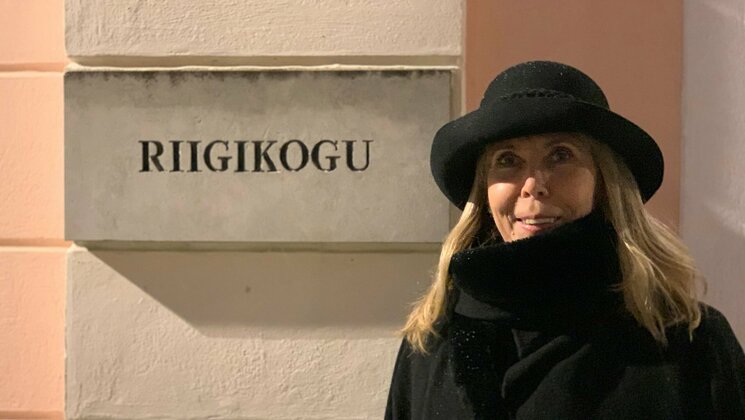-
Faculty of Arts and HumanitiesJakobi 2, r 116-121 51005 Tartu linn, Tartu linn, Tartumaa ESTJakobi 2 51005 Tartu linn, Tartu linn, Tartumaa ESTJakobi 2, IV korrus 51005 Tartu linn, Tartu linn, Tartumaa ESTJakobi 2, III korrus, ruumid 302-337 51005 Tartu linn, Tartu linn, Tartumaa ESTÜlikooli 16 51003 Tartu linn, Tartu linn, Tartumaa ESTLossi 3 51003 Tartu linn, Tartu linn, Tartumaa ESTÜlikooli 18 50090 Tartu linn, Tartu linn, Tartumaa ESTPosti 1 71004 Viljandi linn, Viljandimaa ESTJakobi 2 51005 Tartu linn, Tartu linn, Tartumaa ESTJakobi 2 51005 Tartu linn, Tartu linn, Tartumaa ESTFaculty of Social SciencesLossi 36 51003 Tartu linn, Tartu linn, Tartumaa ESTJakobi 5 51005 Tartu linn, Tartu linn, Tartumaa ESTLossi 36, ruum 301 51003 Tartu linn, Tartu linn, Tartumaa ESTNarva mnt 18 51009 Tartu linn, Tartu linn, Tartumaa ESTNäituse 2 50409 Tartu linn, Tartu linn, Tartumaa ESTNäituse 20 - 324 50409 Tartu linn, Tartu linn, Tartumaa ESTLossi 36 51003 Tartu linn, Tartu linn, Tartumaa ESTRaekoja plats 2 20307 Narva linn, Ida-Virumaa ESTRingi 35 80012 Pärnu linn, Pärnu linn, Pärnumaa ESTLossi 36 51003 Tartu linn, Tartu linn, Tartumaa ESTLossi 36 51003 Tartu linn, Tartu linn, Tartumaa ESTFaculty of MedicineRavila 19 50411 Tartu linn, Tartu linn, Tartumaa ESTBiomeedikum, Ravila 19 50411 Tartu linn, Tartu linn, Tartumaa ESTNooruse 1 50411 Tartu linn, Tartu linn, Tartumaa ESTL. Puusepa 1a 50406 Tartu linn, Tartu linn, Tartumaa ESTL. Puusepa 8 50406 Tartu linn, Tartu linn, Tartumaa ESTRavila 19 50411 Tartu linn, Tartu linn, Tartumaa ESTUjula 4 51008 Tartu linn, Tartu linn, Tartumaa ESTRavila 50411 Tartu linn, Tartu linn, Tartumaa ESTRavila 19 50411 Tartu linn, Tartu linn, Tartumaa ESTFaculty of Science and TechnologyVanemuise 46 - 208 51003 Tartu linn, Tartu linn, Tartumaa ESTNarva mnt 18 51009 Tartu linn, Tartu linn, Tartumaa ESTRiia 23b/2 51010 Tartu linn, Tartu linn, Tartumaa ESTRavila 14a 50411 Tartu linn, Tartu linn, Tartumaa ESTNarva mnt 18 51009 Tartu linn, Tartu linn, Tartumaa ESTRiia 23, 23b - 134 51010 Tartu linn, Tartu linn, Tartumaa ESTObservatooriumi 1 61602 Tõravere alevik, Nõo vald, Tartumaa ESTNooruse 1 50411 Tartu linn, Tartu linn, Tartumaa ESTJ. Liivi tn 2 50409 Tartu linn, Tartu linn, Tartumaa ESTVanemuise 46 51003 Tartu linn, Tartu linn, Tartumaa ESTVanemuise 46 51003 Tartu linn, Tartu linn, Tartumaa ESTArea of Academic SecretaryLossi 3 51003 Tartu linn, Tartu linn, Tartumaa ESTUppsala 6, Lossi 36 51003 Tartu linn, Tartu linn, Tartumaa ESTArea of Head of FinanceÜlikooli 17 51005 Tartu linn, Tartu linn, Tartumaa ESTArea of Director of AdministrationÜlikooli 18A (III korrus) 51005 Tartu linn, Tartu linn, Tartumaa ESTÜlikooli 18, ruumid 102, 104, 209, 210 50090 Tartu linn, Tartu linn, Tartumaa ESTArea of Vice Rector for DevelopmentNarva mnt 18 51009 Tartu linn, Tartu linn, Tartumaa ESTVanemuise 46 51003 Tartu linn, Tartu linn, Tartumaa ESTLossi 25 51003 Tartu linn, Tartu linn, Tartumaa ESTArea of RectorArea of Vice Rector for Academic AffairsUppsala 10 51003 Tartu linn, Tartu linn, Tartumaa ESTÜlikooli 18b 51005 Tartu linn, Tartu linn, Tartumaa ESTArea of Vice Rector for ResearchW. Struve 1 50091 Tartu linn, Tartu linn, Tartumaa EST
On 15 October 2015, Tiit Remm will defend his doctoral thesis „Sociocultural Space: Spatial Modelling and the Sociocultural World“ in the Council of the Institute of Philosophy and Semiotics
On 15 October 2015, Tiit Remm will defend his doctoral thesis „Sociocultural Space: Spatial Modelling and the Sociocultural World“ in the Council of the Institute of Philosophy and Semiotics
Supervisor: Anti Randviir, University of Tartu
Opponents: Risto Kalevi Heiskala (University of Tampere) and Hannes Palang (Tallinn University)
Summary
Social and cultural theories involve organising the knowledge and its representation as a basic task in their strive for explaining the sociocultural world. It is a domain of models and metalanguages where spatial models and metalanguage have a substantial role.
Social space, cultural space, field, social distance and mobility, boundary – these and other spatial expressions are tools for organising social and cultural theoretical knowledge. Selected notions form coherent clusters which together still remain characterised by multitude of ideas of spatiality and respective kinds of structures.
Contextualising notions in the framework of spatial modelling as a cognitive process enables further clarification of this variety. It is essential that spatiality is first of all an organisation of knowledge. It is not directly derived from physical, material or geographical space but from the ability to recognise the co-existence of objects of cognition or their potentialities as the spatial relation. From this kind of simple recognised relations various spatial complexes or spaces are formed – as abstract ideas or tangible articulations. Rather different spatial descriptive means are thus related to the same basis and are interlinked at the multi-layered field of spatial cognition.
Through the particular perspective of semiotics it is possible to uncover the relations between metaleval abstract spatial models and object-level spatiality from the aspect of both the symbolic space of the cultural world-view and the spatiality of practices. In my analysis I focus on spatial terminology in works by three authors, Pierre Bourdieu, Juri Lotman and Pitirim Sorokin. I show that due to the variety implied in spatial terminology different applications of spatial metalanguage to a common object domain enable modelling the variety of sociocultural world and its functioning. It is also outlined how at first sight unbiased spatial notions can turn the understanding of the object to be spatial. The exact organisation and level of this spatiality can again be different. Relations between metaleval abstract spatial models and object-level spatiality from the aspect of both the symbolic space of the cultural world-view and the spatiality of practices.
Read more similar news






